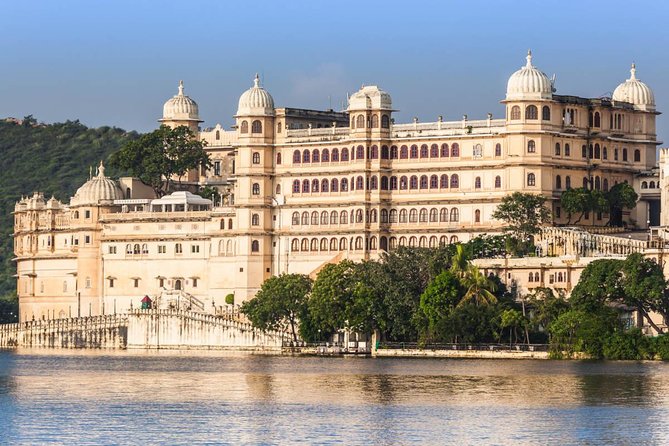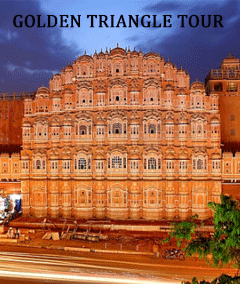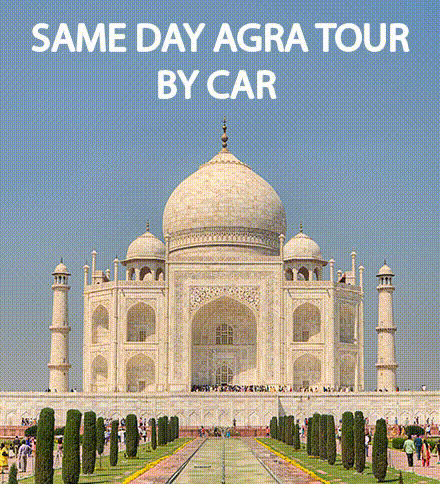Tour Description
13 Nights 14 Days Rajasthan Tour Package
Overview
Rajasthan - a land of Kings, has a rich history that is battle-scarred; but it also showcases the Royal history in the form of its palaces and forts. And so, while choosing 14 Days Essence of Rajasthan Tour, we take pride in showing you the best of Indian History wrapped in colorful turbans, shadows of the sky falling on sand dunes, and architectural wealth which is un-parallel. So, explore more of this land in all its colors, shades, and tastes as it turns into a beautiful memory
What's Included
- Air-conditioned vehicle
- Hotels
- Tour Guide
- JAISALMER CAMEL SAFARI AND DESERT
- Gratuities
- Entrance Fees
*****TOUR ITINERARY*****
Day 01: Arrive in Delhi
Indira Gandhi International Airport Scheduled arrival at Delhi IGI Airport. Our representative will assist you to reach the designated hotel. Relax and spend time in leisure activities. Overnight stay at hotel.
Day 02: Delhi – Full day City tour
Red Fort
Delhi\'s colossal Red Fort (also known as Lal Qila) was home to emperors of the formidable Mughal dynasty for almost 200 years, until 1857 when the British took over. However, the fort isn't just a long-standing symbol of the grandeur of the Mughal era. It has withstood the turbulent trials and tribulations of time—and attack—to be the setting of some of India\'s most important historical events that shaped the country. Nowadays, the fort is one of Delhi's most popular tourist attractions.
Jama Masjid
A prominent landmark and one of the top tourist attractions in Delhi, Jama Masjid (Friday Mosque) is also the biggest and best-known mosque in India. It will transport you back to the time when Delhi was known as Shahjahanabad, the illustrious capital of the Mughal Empire, from 1638 until its fall in 1857. Find out all you need to know about Delhi\'s Jama Masjid and how to visit it in this complete guide.
Chandni Chowk
today is a street of shops, decrepit buildings and an excess of traffic. Everything has as much room as a sardine in a tin of sardines. This lost gem of Shahjahanabad, once the most famous street in India, used to have a waterway running down its spine fed from the River Yamuna. Each side was planted with trees and the houses were large and interspersed with parkland. Up until some time in the early 1960s trams would trundle up and down this road. There are plans to pedestrianize much of the road and reintroduce trams.
India Gate
India Gate is a war memorial, which was initially named as the All India War Memorial. This structure is situated Rajpath region of New Delhi. Do not confuse it with the Gateway of India, which is located in Mumbai. This structure stands as a memorial to more than 70,000 soldiers who died in the First World War and the Third Anglo-Afghan war.
Day 03: Delhi / Agra (210Kms, 5Hrs drive)
Tomb of Itimad-ud-Daulah
Named the ‘Baby Taj’ this monument is considered the inspiration for the world wonder, Taj Mahal. However, the tomb of Itimad-Ud-Daulah is a more delicate artwork with marble lattice screens and fine carvings. This is the first Mughal structure made with marbles by Nur Jahan, mother of Shah Jahan (builder of Taj Mahal). This was the first of many tombs to be erected on the banks of River Yamuna. If you are visiting Agra, you ought to pay a visit to this diminishing piece of beauty, which stands as an initial to every marble monument that glorifies Agra.
Taj Mahal is one of the Seven Wonders of the World, located in the Mughal city of Agra that still holds its glory even after years of its construction. This magnificent structure of white marble was built by Mughal Emperor Shah Jahan for his beloved wife, Mumtaz Mahal in her memory. The intricate carvings and architecture adorn the Taj Mahal, making it glorious. Therefore, it draws numerous tourists from all parts of the world. It is made of marble that reflects various colors with the changes in the rays of Sun. The Taj Mahal also looks majestic under the moon light that keeps the spectators enthralled. Besides exploring the beautiful Taj, one can also take a trip to the nearby attractions such as Agra Red Fort, The Tomb of Itimad-ud-Daulah, and Sikandra Fort. Travelogy India will provide you with excellent Taj Mahal Tour Packages, to explore Taj Mahal and its nearby attractions in the best possible way.
Day 04: Agra /Jaipur (245Kms, 4.5Hrs drive)
Fatehpur Sikri A city that was once the proud capital of the Mughal Empire in the 16th century, Fatehpur Sikri now stands deserted as a well-preserved ghost town. It was abandoned by its occupants after only 15 years due to an insufficient water supply. Fatehpur Sikri was established by Emperor Akbar from the twin villages of Fatehpur and Sikri as a tribute to the famous Sufi saint, Sheikh Salim Chishti. The saint accurately predicted the birth of Emperor Akbar's longed-for son.
Buland Darwaza As you make your way towards Fatehpur Sikri during your trip from Agra, you are greeted by the sight of the Buland Darwaza. And what a marvelous sight it is, exuding majesty by its sheer proportions and heavenly facade. This magnificent structure was built by the Mughal emperor Akbar to celebrate his decisive victory over Gujarat in 1573.
Jama Masjid The Mughals can be credited with having built some of the grandest structures in the history of India. Their architectural brilliance is reflected in the amazing monuments, palaces, and other structures that are scattered across much of North India today. During your sightseeing tour from Agra when you visit Fatehpur Sikri, you will come across Jama Masjid. Its size, dimensions, and aesthetics, each part of it will remind you of the advancements made in the field of art and architecture under the rule of the Mughals.
Tomb of Sheikh Salim Chisti A trip to Agra lets you see the splendid historical monuments, from forts to tombs and other structures. All of these represent the epitome of fine Mughal art and architecture. The Tomb of Salim Chisti is one such structure located in Fatehpur Sikri. Fatehpur Sikri, a UNESCO World Heritage Site, was established by Akbar to serve as its capital. It was abandoned soon after due to water scarcity. It was built by the Mughal emperor Akbar to honor the famous Sufi saint Salim Chisti between the years 1571 and 1580. And what a fine specimen of beauty it is! Located on the premises of the Friday Mosque complex, it is made of pure white marble and stands graciously on a plinth.
Day 05: In Jaipur Sightessen
Amber Palace Amber was once the capital of princely Jaipur state, and the fort the residence of its Rajput rulers. Maharaja Man Singh I, who led Mughal Emperor Akbar\'s army, commenced its construction in 1592 on the remains of an 11th-century fort. Successive rulers added to Amber Fort before moving the capital to Jaipur in 1727. The fort was declared a UNESCO World Heritage site in 2013, as part of a group of six hill forts in Rajasthan. Its architecture is a noteworthy fusion of Rajput (Hindu) and Mughal (Islamic) styles.
The palace was constructed by Maharaja Sawai Jai Singh II. Like most structures in Jaipur, this palace also reflects the fusion of Mughal and Rajput architecture. The City Palace complex is spread over a large area occupying one-seventh of the old city of Jaipur. It has a sequence of gardens, buildings, courtyards, temples, and museums to give it a grand view that reflects its historical importance and magnificent royal grace. Its outer boundary was built by Raja Jai Singh and other structures by his successors to add charm to it. It also served as a residence for former Maharaja of Jaipur.
Day 06: Jaipur – Pushkar (135Kms, 3.5Hrs drive)
Brahma temple in Pushkar is a rare religious site that is dedicated to the lord of creation, Lord Brahma. The reason behind it being rare is that the temple is amongst the very few existing temples of Lord Brahma in India. Known as the Jagatpita Brahma Mandir, this Hindu temple has its address in the Pushkar town of Rajasthan. Days of construction of this temple date back to the 14th century. However, Indian Mythology believes the origin of this temple took place 2000 years back in history. Located close to the sacred Pushkar Lake, the temple is a highly prominent tourist attraction; with large flock of tourists visiting it especially on the auspicious occasion of Kartik Poornima.
Pushkar Lake
Pushkar Lake is considered the holiest lake in India. This water reservoir is enclosed by 52 ghats (personal ghats for 52 Maharajas of India) and 500 temples. According to Hindu mythology, this lake was created by the fallen petals of Lord Brahma\'s lotus when he was destroying the demon Vajra Nabha. Lotus petals were struck at a particular place and water spurted from there giving it the shape of a pious. The charm of Pushkar Lake is also mentioned in some old books like Abhigyan Sakuntalam, Mahabharat and Ramayana. A dip in this holy water can purify one from all the sins, troubles, and ailments. Sacred to the Hindus as well as the Sikhs, this lake has its mentioned in history since the 14th century.
Day 07: Pushkar – Udaipur (300Kms, 7Hrs drive)
City Palace of Udaipur
Head towards Udaipur in the morning. Arrive by afternoon and check into the designated hotel. Spend the rest of your time free in leisure activities. Overnight stay in the hotel.
Day 08: Udaipur
Sahelion Ki Bari Witness the lavish lifestyle of the royal ladies at Saheliyon ki Bari. There are pools, lily ponds, flowers, marble fountains, flowers, etc. It was built by Maharana Sangram Singh in the 18th century to please his princess. The garden has four pools ornated with delicately chiselled kiosks, elephants in marble (each elephant sculptured out of a single piece of stone) and lions carved out of marble serving the purpose of the fountain which creates the royal picture of the bygone era. There is a small museum within the garden that exhibits soft toys, classic pictures, etc. Saheliyon ki Bari is the place where all the kings used to enjoy some leisure time far away from their political and social duties.
Jagdish Temple
Jagdish Temple is one of the famous temples of Udaipur. Located in the City Palace complex of Udaipur, this temple is made in the Indo-Aryan style of architecture. In 1651, the Jagdish temple was built by Maharana Jagat Singh, who ruled Udaipur from 1628-to 53. The temple is dedicated to Lord Vishnu (Laxmi Narayan also known as Jagdish), the preserver of the Universe. It is celebrated for being the largest temple in the city of Udaipur. The entrance of this temple is easily sited from the Bara Pol of the City Palace. The three-storied Jagdish Temple is a marvel of design that includes superbly graven pillars, embellished ceilings, painted walls and plush halls.
Lake Pichola
Coming to Udaipur, and missing a boat ride on this lake is like committing a crime. One of the oldest and the biggest lakes in Udaipur, Pichola Lake is world-famous for its picturesque beauty and scenic surrounding. Rudyard Kipling mentioned this lake in his Letters of Marque (1899), \"If the Venetian, owned the Pichola Lake, he might say with justice, see it and die. One will fall in love with this lake the moment one sees it. There are many islands within this lake. The famous tourist destination of Udaipur, Jag Mandir is also a part of this lake. The pristine blue waters of the lake leave a soothing impact on the spectator. At the time of sunset, a boat ride on this lake is sufficient to enthrall anyone.
Day 09: Udaipur/ Jodhpur (250Kms, 5Hrs drive)
Ranakpur Jain Temple Ranakpur Temple
one of the most beautiful temples in India makes a perfect day trip if you are traveling between Udaipur and Jodhpur. We were very pleasantly surprised by the beauty and serenity of this temple.
Mehrangarh Fort
Now, let us check out some interesting facts about Mehrangarh Fort, Jodhpur. Mehrangarh means the Citadel of Sun God, Mehr meaning Sun, and Garh meaning fort. As you enter the city you can see this fort almost from any part of Jodhpur, due to its location at almost 400 meters above the city skyline. The small handprints on the walls of Mehrangarh Fort depict the sacrifice of royal women during Johar (they plunged themselves into the fire when the army lost to save their honor from the enemy). The symbol of cannon balls on the walls showcases the battles which took place in the fort.
Jaswant Thada
This white marbled architecture is a memorial site of a Rajput clan. This cenotaph was built in the 19th century by Maharaja Sardar Singh in the memory of his father, Maharaja Jaswant Singh II, the 33rd Rathore ruler of Jodhpur. One should visit this memorial, which has a temple-like architecture, on their tour to Jodhpur. Jaswant Thada is a perfect example of architectural brilliance. The architecture is made of white marbles which are so fine that the outer surface of the whole building emits a warm glow during sunlight. Currently, it exhibits a variety of paintings and portraits of Jodhpur rulers.
Day 10: Jodhpur / Jaisalmer (280Kms, 6Hrs drive)
Camel Safari In Jaisalmer Most tour itineraries look like this: ride to the middle of the desert, watch the sunset, go to a setup shack for dinner, ride back to a nice high dune for bedtime on a cot, wake up for sunset, and ride back. Riding a camel is mainly easy, but accidents can happen, just read this story from Liz over at Young Adventuress, who seriously injured herself. I have compiled an ultimate checklist for you to make sure you are readily prepared for your safari
Day 11: Jaisalmer
Jaisalmer Fort Jaisalmer Fort was built in 1156 and is the second oldest fort in the state of Rajasthan. This magnificent fort is also known as Sonar Quila is a perfect example of Indian craftsmanship and military magnificence. It is one of the oldest existing forts of Rajasthan after Chittorgarh. The fort is situated atop the Trikuta hill amidst the sandy terrain of the Great Thar Desert.
Salim Singh-ki Haveli Salim Singh Ki Haveli was built in 1815 by Salim Singh, the prime minister of the kingdom when Jaisalmer was the capital. This mansion was not created with the help of types of cement and mortar- the stones are connected with strong iron rods. This mansion is famous for its distinctive architecture as it constitutes 38 gracefully carved balconies. The architecture of this mansion is inspired by a dancing peacock. One of the most ambitious constructions of its times, the Haveli is so magnificent, that it even invited the ruler\'s envy during its era.
Day 12: Jaisalmer / Bikaner (330 kilometers, 7 hours drive)
Junagarh Fort The fascinating Junagarh fort was constructed by Raja Rai Singh, between 1588 -and 1593 AD. He was the sixth ruler of Binaker who ruled here from 1571 to 1611 AD. The supervision of the construction of the fort complex was done by Karan Chand, Raja Rai Singh’s Prime Minister. The construction of the Junagarh fort started on 30th January 1589 and was completed on 17th February of the same year.
Day 13: Bikaner / Mandawa (170 kilometers, 4.5 hours drive)
Mandawa Heritage Tours After having breakfast head to Mandawa. It is part of the Shekhawati region and lies between Jhunjhunu and Sikar. Check into the designated hotel upon arrival. After freshen up explore villages and visit Nawalgarh Fort (Bala Kila Fort) -built by Thakur Nawal Singh. It was founded in 1737 AD. Later, visit Roop Niwas Palace – about one kilometer away from Nawalgarh Fort. The glorious Roop Niwas Palace was built by Thakur Roop Singh Ji and RawalMadan Singh Ji. The palace has a well-laid garden and fountains. Visit Anandilal Poddar Haveli, Murarka Haveli, and Aath Haveli Complex among others. Overnight stay in the hotel.
Day 14: Mandawa / Delhi International Airport Departure (260 kilometers, 5.5 hours drive)
Indira Gandhi International Airport After breakfast in the hotel spend the day time in leisure activities till the scheduled departure for Delhi. Reach Delhi International airport upon arrival to board a flight for a respective destination. This concludes a joyful tour to north Indian cities with Radha Voyages.




